Nurses do so much more than we know

It’s something we rarely think about but without Alfred, Bruce Wayne wouldn’t be Batman. He’d forget his dinner plans, where he left his keys, and possibly even his password to the Batcave. Similarly, nurses are unsung heroes to doctors all around the world.
Go to hospital for surgery, and your medical files are brought out by a nurse. Then you’ll get prepped by a nurse who calms you down, before another nurse ensures that all the equipment is in full working order.
With Korean drama Doctors overshadowing You Can Be An Angel Too, a local show about nurses, enough is enough – there’s a lack of appreciation for what nurses do. So we’re setting that right. We spent a day at Mount Alvernia Hospital to find out what it is about a nurse’s job that makes millennials hesitant to take the plunge – and why some nurses choose to do it anyway. Here’s what we found.
1. You mature quickly because you have to

I grew up loving Channel 8 dramas that often show how life comes in stages: from newborns to waddling toddlers, then growing into our teens before maturing into decision-making adults. Then we grow old and eventually have a bedside of children and grandchildren we’re bidding our final farewells to.
Sounds like a straightforward journey, but it really isn’t. Life has many moments, with some so full of joy that your heart feels like it’s bursting, and others not so happy.
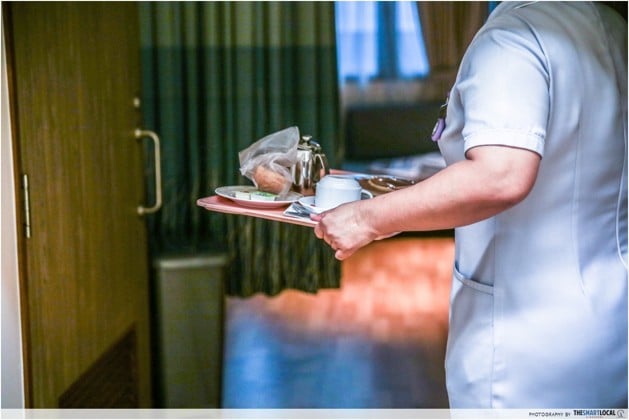
Being a nurse means you could joke with Uncle Timothy in Bed 2601 then report in for your next shift to see an empty bed, even if he looked perfectly fine just 6 hours before. The unpredictable nature of this job makes it hard when your patients finally succumb to their condition, but when faced with such circumstances, you quickly develop depths of emotional capacity far superior than those of your peers.

Some patients stay less than an hour in the hospital, others weeks or months, but the most heart wrenching cases are the ones that don’t make it. But as much as it upsets us all, nothing comes close to teaching you the value of being alive.
Knowing how fragile life can be, you’ll appreciate and cherish time with your loved ones more than other office ladies out there whose focus is only to hit their KPIs. Deskbound jobs might affirm your paper chase but you’ll realise that there are few professions that will prepare you for life to this extent.
2. The erratic hours mean you’re sacrificing sleep for complete strangers
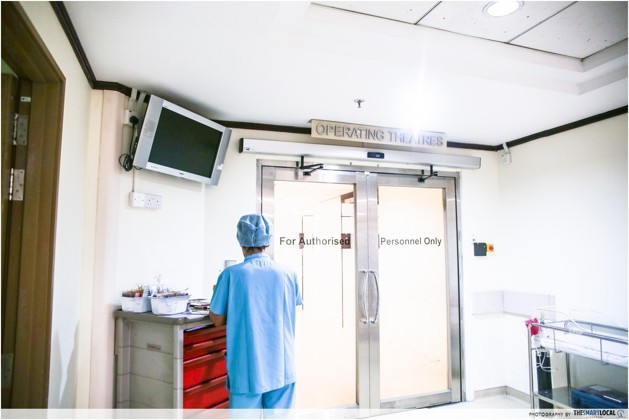
If getting out of bed for school is a challenge for you, then starting work at 7am is a huge no-go. Now imagine sacrificing your beauty sleep not to satisfy a supper craving but to work till dawn again.
The night lives of nurses sound almost like a tragedy, but what most people won’t give up sleep for, they do. While their peers dream away, nurses tank 9pm – 7.30am shifts, making sure the people that you care about are resting comfortably, and that they’re less than sixty seconds away from any emergency.

When the morning comes, your first thought won’t be a “what was I thinking of yesterday night”. Instead, you’ll be thankful that the night went smoothly under your watch. And even if it didn’t, you’ll know you made a difference to someone’s life.
3. People go “okay, but where’s the doctor?” when you’re giving them crucial information

It’s different when you’re a doctor vs when you’re a nurse. And it sucks when patients ignore your input, seeking advice instead from a doctor, even if you’ve had more years of experience. This is especially true for new parents, who think they’ll get “higher quality” information from a doctor than a nurse.
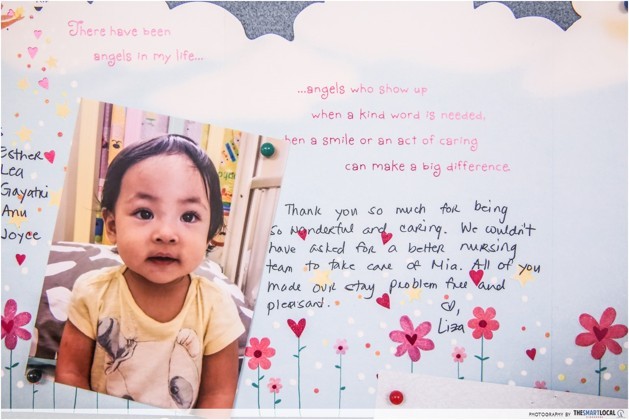
But as a nurse, you understand that your best work goes on behind the scenes. Although some parents don’t notice what you do, your work is not unnoticed. If every kid in paediatric wards was more expressive, they’d tell you how thankful they were for “nurse Sophia, who always comes by to make sure I’m not hungry.”
It’s not always about attending to sick and crying kids too – you’ll get to spend time with children, talking about their ambitions and thinking of ways to cheer them up. One of the most gratifying moments is seeing children who were hooked up to drips and life support saying thanks when they’re in the pink of health again.
4. You face so many stereotypes, and they are incredibly satisfying to beat
a. “Eee, does that mean you do all the dirty things?”
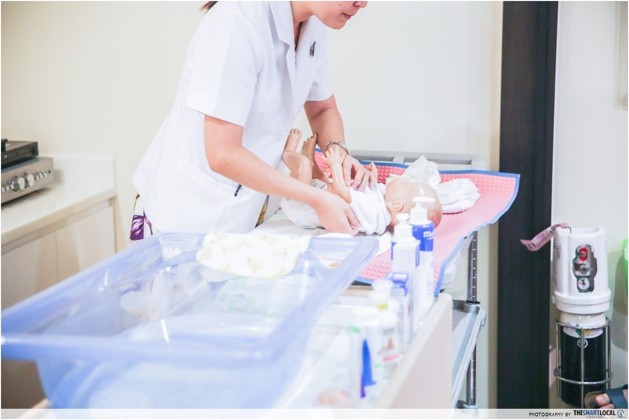
Tell your friends that you’re a nurse, and you can expect negative reactions. Many people associate nurses with butt cleaning, toilet trips and injections. You can also expect to raise some eyebrows at family gatherings and hear some “huhs” you cannot even siam.
But you’re not purely what everyone thinks: a saikang warrior. Your help and support for a patient to regain their ability to walk, however, often get overshadowed by what seems more unpleasant: assisting him in the toilet.

Yes, there are going to be “unpleasant” duties, but deep down you know that you do it because you genuinely care for the patient. More importantly, it teaches you to notice the unsung heroes in your life more fully.
b. You’ll forever be “stuck” as a nurse
One of the biggest misconceptions people have is how limited a nurse’s career trajectory seems to be. While Singaporeans in the rat race are all too familiar with the corporate ladder, a nurse’s career progression would appear to plateau to any outsider.

The truth is, it’s a matter of circumstance. Being a nurse can be a stepping stone to great career advancements, with higher tier specializations like midwifery being offered to nurses exclusively.
At Mount Alvernia Hospital’s Parentcraft Centre, which teaches new parents how to handle newborns, the entire team of lactation consultants and experienced midwives were all nurses when they started their careers. Ms Kang Phaik Gaik, who used to be a midwife, would tell you that if you have an interest in midwifery and childbirth, you must first be a certified nurse.
c. All nurses do the same thing, no?

Most people think a nurse’s job is substitutable by anyone wants an iron rice bowl, but they’d be wrong – nurses are far more specialised than they’re often made out to be.
Nurses from the maternity ward are trained in daily routines exclusive to new mothers and their babies. Likewise, nurses in operating theatres, general and pediatric wards are equipped with unique sets of procedures. They may all don the same uniform and go through similar motions, but think of how different wizards and clerics are in your RPG although they sound the same to a non-gamer – a day in the lives of 2 different nurses can be worlds apart.
5. It’s the few who thank you that make it all worthwhile
Most of us find it hard to approach and talk to strangers, much less care for them on a daily basis like they’re family. This is not a profession where you can just “mind your own business”, but the relationships you build with blood, sweat and tears bring immense satisfaction.

A nurse has to muster composure in situations where others would crack under pressure. Even when a patient’s loved ones are pressing you for answers at crunch time, you have to assure them of the medical team’s competence – your competence – then prove it.
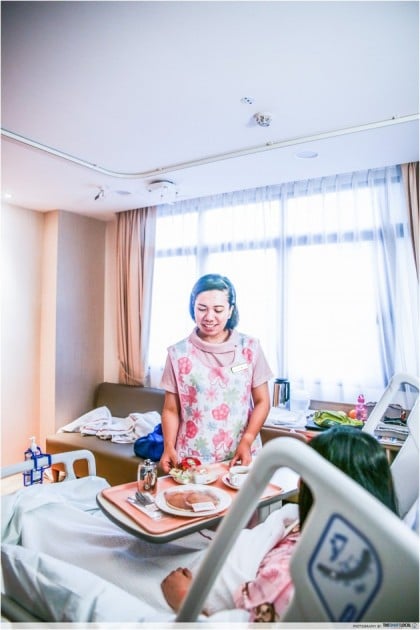
In the process, you learn to develop your own ways of winning your patients’ trust. Precisely because you spend more time on ground, you share a relationship far more intimate than doctors do with them.
Some nurses from the maternity wards have become so close with their patients that they were even specially requested by returning mothers to care for their 2nd, and 3rd newborns!
Voices in a millennial’s head: Head vs Heart

From novices in the industry to nurses who have dedicated decades of their lives to this line of work, they will tell you that the face of nursing is changing. As more people sign themselves up for what is mistaken as “cleaning” in a hospital setting, stereotypes are being subverted slowly but surely.
It’s a great understatement to say this job is full of trials and turbulence, but young hearts are won into service by sheer passion and belief in their calling. It’s easy to settle for a comfortable job, but the road less traveled is made a whole lot more exciting with an appetite for adventure and challenges.

Many of us have our fingers crossed that we will always stay healthy and well, but what happens when misfortune strikes and we need someone as close as family to rely on?
To all the nursing comrades who now follow an uncorrectable sleep cycle but would never, for once, consider leaving a sick warrior behind, we salute you.
Find out more about a career in nursing here
This post was brought to you by Mount Alvernia Hospital.
